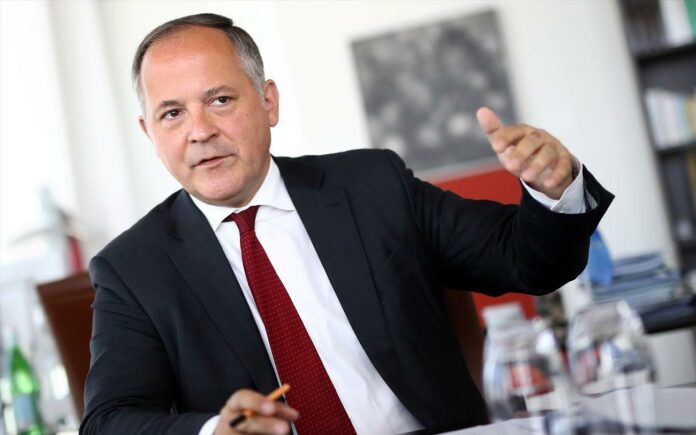ECB executive board member Benoît Cœuré told Bloomberg this week that it’s now the Euro zone finance ministers’ turn to “deliver” in confirming the sustainability of the Greek debt, speaking days before Thursday’s crucial Eurogroup meeting.
Cœuré, the European Central Bank’s “old hand” in terms of the Greek bailout program, emphasized that the Eurogroup must aid efforts to boost confidence in the crisis-battered Greek government.
His comments on the Greek issue, made during an interview with Francine Lacqua on Monday, were released by the Euro zone’s central bank.
Among others, he responds to the question of what happens now with the bailout dependent Euro zone member at the Eurogroup:
“… I very much hope, and the ECB very much hopes, that this will be the concluding meeting that will make more precise the way the Greek debt will be addressed by the Eurogroup. The Greek government has done its part. They have done their part in terms of policies, in terms of the MOU, and now it’s for Eurogroup ministers to deliver when it comes to confirming the sustainability of Greek debt.
“As I said earlier, it wouldn’t serve a purpose to keep the Greek economy in limbo for one more year. We need a decisive act by the Eurogroup that will create confidence in the Greek economy. It’s time for investors to come back in Greece, it’s time for depositors to bring back their money to Greek banks, and it’s for the Eurogroup to give the signal that will make it possible.”
Asked if a resolution to the issue this week will be something that’s acceptable to the ECB, he said:
“Well, another discussion will be about the monetary policy consequences and inclusion of Greek debt into QE. That’s a different discussion. It is a monetary policy discussion. So the Governing Council will take whatever will come out of the Eurogroup, and this will be considered and assessed against our rules. We’re certainly not going to be part of a political quid pro quo with the Eurogroup. These are two different discussions.”














